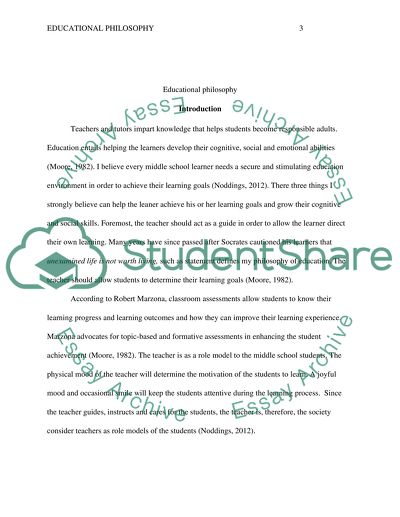Education - Educational Philosophy Essay Example | Topics and Well Written Essays - 750 words. Retrieved from https://studentshare.org/education/1445520-educational-philosophy
Education - Educational Philosophy Essay Example | Topics and Well Written Essays - 750 Words. https://studentshare.org/education/1445520-educational-philosophy.


